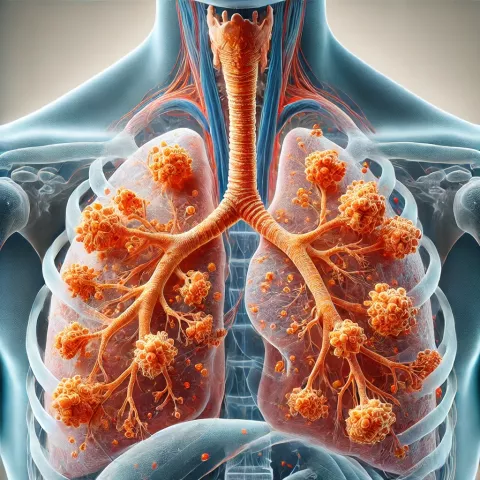A recent study published in translational lung cancer research demonstrated the effect of the administration of amivantamab in patients with non-small cell lung cancer (NSCLC), leading to skin toxicity.
Amivantamab is a Mesenchymal-Epithelial Transition (MET) and epidermal growth factor receptor (EGFR) inhibitor used to treat EGFR exon 20 insertion (EGFRex20ins) mutations.
The study aimed to determine the effect of adding amivantamab later in the ongoing EGFR-tyrosine kinase inhibitor (TKI) therapy.
The study was conducted in Shaare Zedek Medical Center (SZMC) from October 2021 to May 2024 on patients treated with amivantamab with previous EGFR-TKI. Nine patients (cohort A) were included with a common EGFR mutation (four exon 19 deletions (ex19dels), one G719C, four L858R), and six patients (cohort B) with exon 20 insertions. Safety and efficacy were determined according to the Response Evaluation Criteria in Solid Tumors (RECIST) 1.1.
The results of the cohort A group showed that the object response rate (ORR) was 22% (L858R 50%, exon 19 0%), the median duration of treatment (mDoT) was 3 months (L858R 7.5 months, exon 19 2.3 months), and the median overall survival (mOS) was 6.7 months (L858R 14.4 months, exon 19 4.6 months)..
While the cohort B group demonstrated mDoT at 5.5 months, ORR of 17%, mOS at 16.2 months, and DCR at 83%, grade ≥3 toxicities such as diarrhea, infusion reaction, nausea, and thromboembolism were also noted.

